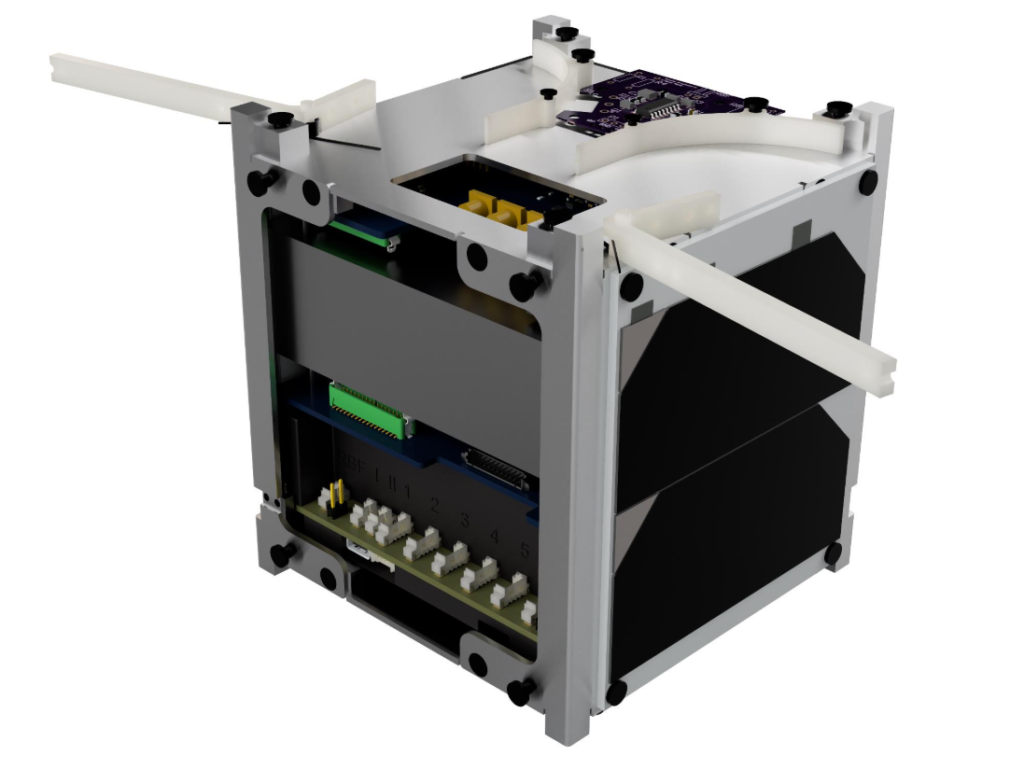Mission Control is thrilled to adapt its Mission Control Software (MCS) technology to a space health and life sciences application. The novel activity to design and develop a prototype real-time medical data transfer system for space health applications is being conducted in partnership with Simon Fraser University (SFU) Aerospace Physiology Laboratory (APL).
The SFU APL, a world-renowned international leader in spaceflight health research, conducts investigations into the negative effects of spaceflight on human physiology including deconditioning in the cardiovascular, cerebrovascular, skeletal and neuromuscular systems.
In collaboration with members of SFU Aerospace, SFU APL is presently developing a Short-Arm Human Centrifuge (SAHC) to counter these issues. The production of artificial gravity through short-arm centrifugation may potentially provide a counter to the microgravity-induced fluid shift experienced through extended spaceflight in combination with exercise.
In partnership with SFU APL and SFU Satellite Design Team, Mission Control will design and develop MCS-APL, an operations system that provides user interfaces to operate one of the payloads of ALEASAT; a 1U CubeSat developed as a joint project between SFU Satellite Design Team and UBC Orbit. This payload uses a customized reaction wheel made by SFU undergraduate Mechatronic Systems Engineering students as a scale model of the SAHC being developed by SFU APL on the ground. MCS-APL will enable SFU APL to visualise SAHC data and apply control parameters and mission operations teams to interface with ALEASAT payload operations.

MCS is a mission operations suite of software services that allows users around the world to monitor and command remote assets using a cloud-based server. MCS was originally designed as a distributed ground-based software framework to enable the operation of payloads and rovers, using advanced algorithms independent of the flight system’s processing capabilities. MCS has been developed and tested in dozens of analogue rover missions led by Mission Control. This system has been sold commercially and used in hundreds of hours of remote robotic mission operations since 2016, including for CSA and NASA funded lunar and Mars analogue missions and dozens of education and public outreach activities through our Mission Control Academy.
Together, Mission Control, APL, and the SFU Satellite Design Team, will consider industry standards and protocols to design an interface platform and operational protocol that will be used to transmit and validate simulated health data from orbital and ground-based systems to researchers at remote locations.
In the long term, this project will provide a reliable protected health-data transfer user interface system for satellite and ground-based facilities. It will facilitate live physiological data transmission from the centrifuge prototype to ground stations around Canada. The project will help to enable remote experiment and data collection management across Canada and the world, such that sensitive medical information obtained during SAHC and other experiments such as BP, ECG, and EMG can be accessed in real-time by the researcher at any location. The project is key due to significance of patient medical information privacy and challenges in remote real-time medically confidential data transfer. This Mitacs-supported project will help Mission Control and SFU APL to tackle these challenges by designing a unique protocol for medical information transfer that is aligned with patient information privacy and achieves the goal of real-time data transfer in a national and international scope, acting as a stepping stone for space health missions, with benefits at home for tele-medicine and remote communities.

